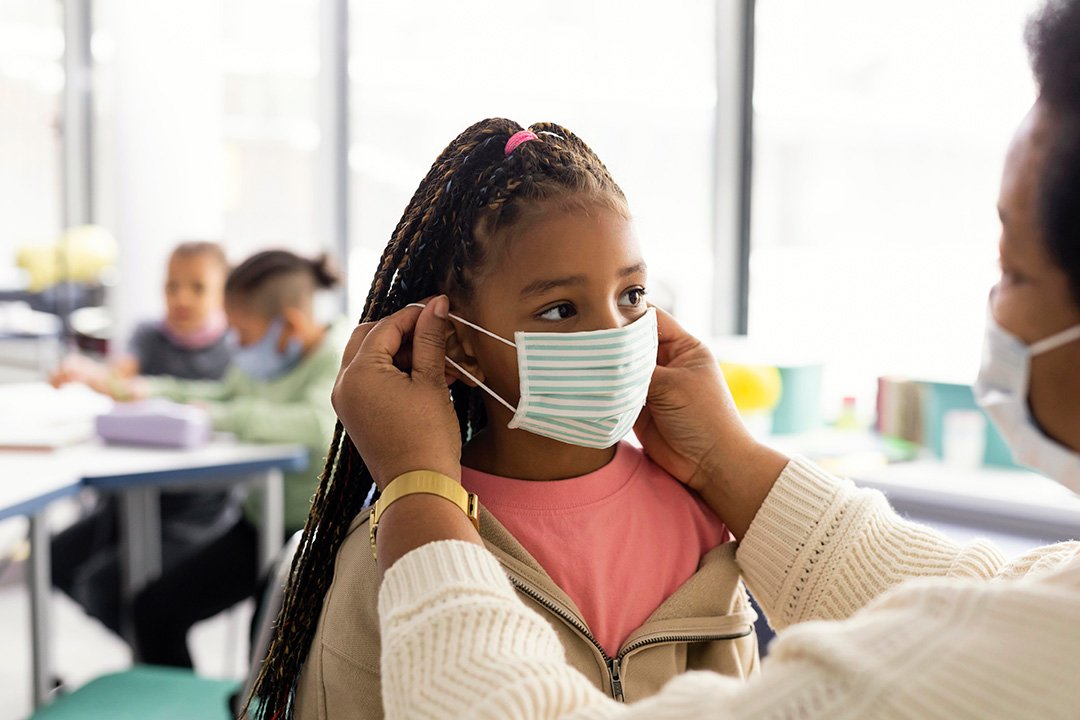The Long-Term Impacts of COVID-19 Threatens Gains in Education in Africa

Educational systems in Africa witnessed unprecedented disruptions due to COVID-19. Almost 300 million learners from Africa were forced out of classrooms for over a year. Although government interventions, such as online and accelerated learning as well as catch-up programs, were essential in supporting continuity of learning and mitigating the short-term consequences of the COVID-19 school closures, little is known about the longer-term consequences of the pandemic on education, especially from the perspective of local education stakeholders. The real impact of COVID-19 on education in sub-Saharan Africa remains unknown due to the lack of reliable evidence. Yet, in the long term, the impact is likely to compromise educational outcomes.
Therefore, under the KIX Observatory on COVID-19 Responses in Educational Systems in Africa, the African Population and Health Research Center (APHRC), in partnership with the Association for the Development of Education in Africa (ADEA), and with support from the International Development Research Centre (IDRC), elicited perspectives of education stakeholders on the projected long-term impacts of COVID-19 on education. We particularly reached out to senior Ministry of Education officials as well as partner program staff across seven African countries: Burkina Faso, Kenya, Malawi, Mali, Mozambique, Niger, and Nigeria. The stakeholders envisioned far-reaching impacts of COVID-19 on learners, teachers, and school systems.
Drawing attention to three key areas: students, teachers, and school systems
First, the learning loss for students, accruing from the lost time during the school closures, was worsened by the “crash” programs, such as abridged curricula, arbitrary class promotions, and other catch-up strategies. This is likely to compromise learners’ acquisition of literacy and numeracy in the coming years, further aggravating the learning crisis, as a stakeholder from Kenya explained: “we are trying to rush learners through the syllabus, so their acquisition of competences … is compromised.” Moreover, some students dropped out of school, with some of them resorting to “quick money” deals such as hawking; some teen girls needed to care for their children, as a stakeholder from Mozambique affirmed: they “got married during this period, and today they are out of school taking care of their babies.” This may see more children and youth out of school in the years to come. Further, our eyes were opened to issues of mental health, traditionally perceived as a “Western problem.” This was attributed to unprecedented shocks stemming from tensions in homes, financial constraints, sexual and gender-based violence (SGBV), loneliness, and COVID-19–related deaths. This foreshadows possible poor learning outcomes, heightened crime rates, as well as reverses in gains made in reducing SGBV and early marriage.
Second, teachers, dubbed “the forgotten frontline workers of COVID-19,” suffered untold psychosocial distress during the school closures, as an interview with a stakeholder from Malawi revealed: “Private schools depend on tuition … in the absence of fees, our operations were affected. Life was tough for teachers … There was a lot of suffering.” Several teachers resorted to other economic activities, which for some proved more lucrative than teaching. This explains the shortage of teachers upon the reopening of schools. If unchecked, this situation is most likely to be detrimental and could exacerbate pre-existing learning gaps. Moreover, there were concerns particularly about the mental health of teachers emanating from financial worries, familial issues, and the pervasiveness of death - including the deaths of colleagues. Ironically, when schools reopened, teachers were expected to provide psychosocial support to students. Teachers’ negative well-being therefore poses a threat to students’ positive outcomes and academic achievement.
Finally, on a positive note, schools embraced information and communication technologies (ICTs) and water, sanitation, and hygiene (WASH) practices, which were useful in advancing pedagogy and health, respectively. The question, however, is: Which schools benefited from this? The interview with a stakeholder from Kenya highlighted that “most of those vulnerable populations could not afford [ICTs]. This posed a big challenge to the digital teaching and learning.”Similarly, the integration of WASH, which includes safe drinking water, hand-washing facilities, and toilets, remains elusive for low-cost schools, as a stakeholder from Nigeria noted: “It was very expensive, most especially [for] the private schools … to acquire the devices, to buy buckets, to ensure soap was everywhere … not all schools could afford that.” Moreover, the long-term consequences of poor school revenue in-flows in such schools will paralyze both the development of adequate infrastructure and the recruitment of qualified teachers, risking the quality of education. This will exacerbate pre-existing inequalities between learners from high versus low socioeconomic backgrounds, given inequitable access to resources including ICTs, WASH, and school infrastructure.
A way forward
Overall, the long-term impacts of COVID-19 on education, as projected through impacts on learners, teachers, and school systems, will disrupt progress made towards attaining inclusive and equitable quality education and life-long learning for all, as well as gender equality and empowerment for all women and girls. This highlights the urgency for policymakers, program implementers, universities, civil society organizations, and the media to partner to generate evidence-based data to inform interventions towards mitigating possible adverse effects of COVID-19 on education in Africa.
▸ Download the Report on the Long-Term Impact of COVID-19 on Educational Systems in Africa